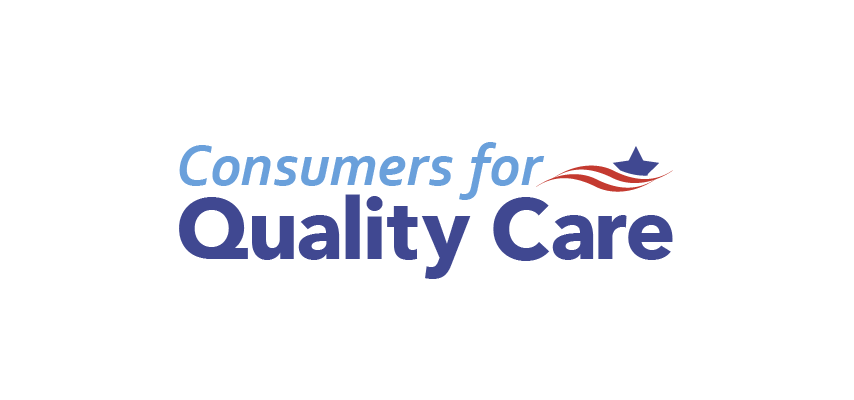CQC Comments On Associated Health Plan Proposed Rule
By Consumers for Quality Care, on March 15, 2018

Consumers for Quality Care, along with Global Liver Institute, National Hispanic Medical Association, Black Woman’s Health Imperative, Autism Speaks, National Partnership for Women & Families, and Epilepsy Foundation, commented on the new proposed rule for Associated Health Plans. CQC raised a number of concerns that the new rule could result in substandard coverage, higher rates of fraud for consumers, and new barriers that restrict states protecting their people.
Read the complete letter below.
March 6, 2018
The Honorable R. Alexander Acosta
Secretary, U.S. Department of Labor
200 Constitution Avenue, NW
Washington, DC 20210
Mr. Preston Rutledge
Assistant Secretary, Employee Benefits Security Administration
U.S. Department of Labor
200 Constitution Avenue, NW
Washington, DC 20210
Dear Secretary Acosta and Assistant Secretary Rutledge,
Thank you for the opportunity to comment on the Proposed Rule Definition of “Employer” under Section 3(5) of ERISA – Association Health Plans. As health care advocates who have come together to speak up for patients and health care consumers, we would like to express our strong opposition to this proposed rule.
The Affordable Care Act (ACA) took steps to restrict the use of AHPs, because they have a history of insolvency problems and providing poor coverage for consumers. States have broad authority to regulate financial solvency, marketing and rating practices, and insurance contracts. However, this proposed rule will make it easier for AHPs to be classified as large group health plans that are subject to fewer regulations than if they were classified as individual or small group market plans. This new order could result in substandard coverage, higher rates of fraud for consumers and new barriers that restrict states protecting their people.
We are particularly concerned with the following proposals that would take effect if the proposed rule is approved in its current state:
- Raising the Risk for Fraud: The proposed rule allows large group plan status for AHPs formed solely for the purpose of sponsoring a group health plan. Previously, a group or association must have existed for a bona fide purpose other than offering health coverage to be considered an employer under federal ERISA law standards. AHPs have long been a vehicle for health plan scams, through both legitimate and phony professional or trade associations. Lowering the barrier to create an AHP by allowing associations to exist solely for the purposes of sponsoring a group health plan increases the risk of rogue, fraudulent and weak coverage that is ultimately bad for patients. The New York Times has reported on several such cases. An AHP that was marketed to churches and small businesses in South Carolina diverted $970,000 in premiums, while leaving $1.7 million in unpaid medical claims. A Florida man embezzled $700,000 in premiums from an AHP he marketed, using some of the stolen funds to build a home.
- Selling insurance across state lines: The proposed rule allows employers to form an AHP on the basis of geography or industry. This means it can serve employers in a state, city, county or multi-state metro area like a Chamber of Commerce, or serve all businesses in a particular industry, trade or profession nationwide, like electricians. Both of these groupings can lead to a composition of AHPs with members across state lines. However, that does not automatically lower premiums or expand consumer choice. Interstate sales could start a race to the bottom by allowing companies to choose their regulator. Insurers may also seek regulations that allow them to aggressively target the healthiest, while consumers who get sick will have fewer options for comprehensive policies and protections when things go wrong. The ability of state insurance regulators to assist consumers would also decrease as their jurisdiction typically does not extend across state lines.
- Additional resources for oversight: The ACA increased oversight of AHPs because of a long history of insolvency and instances across several states where plans were advertising that they had comprehensive coverage when it was not actually so. Since this proposal expands access to AHPs, federal and state regulators will be forced to either dedicate more resources towards protecting against mismanagement and abuse in AHPs or allow such mismanagement and abuse to occur. If DOL approves this rule, they must direct adequate resources to implement these new regulations and oversee these plans in order to ensure that appropriate oversight of AHPs is being conducted.
- Eliminating key consumer protections: While the proposed rule would rightly move to apply HIPAA non-discrimination protections to all AHPs, these plans would still not be subject to Essential Health Benefit (EHB), guaranteed issue, rating limits, single risk-pool and other non-discrimination requirements. This would allow AHPs to use classifications such as age and gender, for which they can charge differential rates, as proxies for health status. In the end, AHPs would pick those individuals and businesses deemed healthiest to cover, leaving those sick and needing care in collapsing small group and individual markets. The final rule must do more to include key non-discrimination provisions and ensure consumers in every state will be able to get quality and affordable care.
We firmly believe that if approved in its current form, this rule will hurt patients across the United States. We are asking that you amend this proposal and do everything in your power to ensure that this rule does not restrict consumer access to quality care.
If you have any questions, please don’t hesitate to contact us.
Thank you,
Consumers for Quality Care
Global Liver Institute
National Hispanic Medical Association
Black Women’s Health Imperative
Autism Speaks
National Partnership for Women & Families
Epilepsy Foundation
